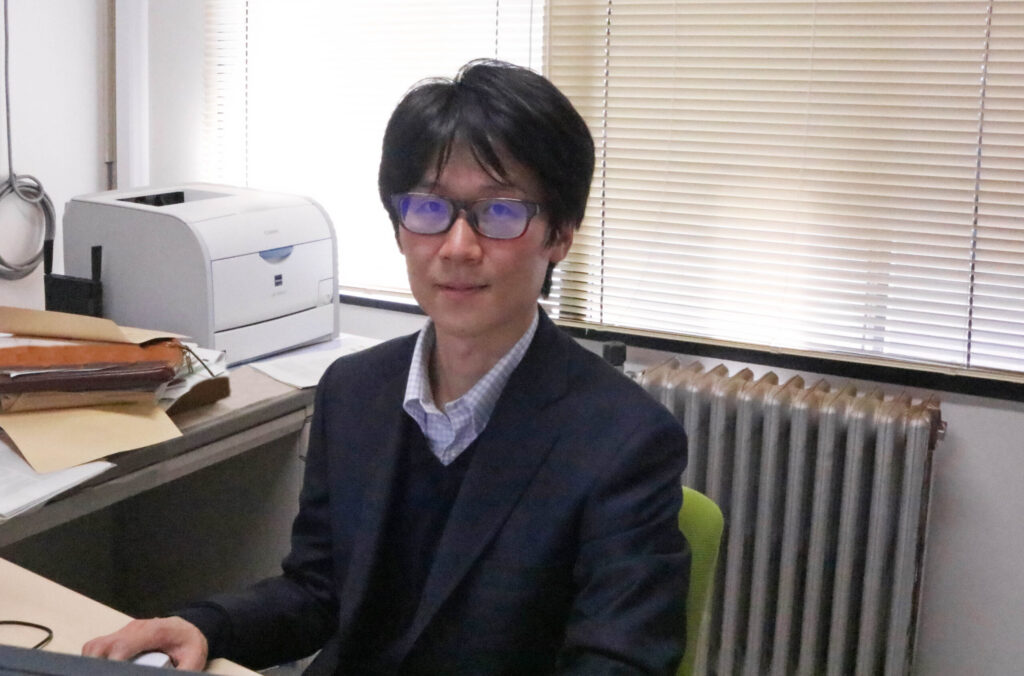Dr. Kazuhiro Ohtani is a certified public psychologist and a lecturer at Hokkaido University's Graduate School of Education. His main research interest is the academic motivations of Japanese students, especially adolescents. He believes that children in the age range of puberty are more prone to depression, which often leads to the loss of academic motivation.
Mainly involved in research on classroom and student-teacher dynamics, recently Ohtani turned his focus on families as well. He believes that the domestic environment may also shape children's psychological state. According to Ohtani, parents could transmit motivational perseverance onto their children; past research has suggested that it could influence a child's depression level, but there have not been many reports on how perseverance and depression level are correlated.
Ohtani considers perseverance as a cultural virtue of Japanese society that is habitually practiced, including in a classroom setting. At every beginning of the academic year, students and teachers decide a communal goal for which students ought to aim. This drives the children to perform their best. However, at the same time, there is a significant level of apathy exhibited by Japanese adolescents.
"Japanese adolescents have some unfortunate characteristics that have been proven by some past surveys: a high level of apathy and low level of academic motivation," said Ohtani. "Another well-known, yet regrettable, fact is that the suicide rate of Japanese adolescents is comparatively higher among the G8 countries."
Together with his research team, Ohtani hypothesized that depression in children could be predicted from parents' motivational perseverance and depression level. To examine the degree of perseverance, Ohtani assessed the growth mindset and grit of both parents and children. Growth mindset is an attitude that emphasizes the effort to achieve something and believes that one's competence can be changed through that effort. Grit is defined as the toughness to withstand failures.
The research team collected surveys from 400 pairs of parent-adolescent children in 2017, with mothers dominating the parent group. Each group independently answered a series of questions that served as indicators of their perseverance and depression level. In the following year, 299 pairs returned to answer the same questions.
Ohtani's survey confirmed that there is a positive correlation between the motivational perseverance in parents and their offspring. Additionally, highly perseverant parents have children that display fewer depressive symptoms. Growth mindset specifically was proven to be a significant factor of a decrease in adolescents' depressive symptoms.
"Growth mindset in adolescents could be reinforced through praise or rewards when they exhibit perseverant behaviors. In other words, instead of praising them only when they succeed, children should also receive a form of appraisal for their effort even when they fail," stated Ohtani.
Ohtani added, "When children could not achieve their goals, it is important for parents to have a follow-up discussion with the children. Together, they should attentively trace and assess the reasons behind the failure, whether it was the wrong method or insufficient effort, and ultimately finding the best solution for future opportunities."
This research is a part of a project called Will Dynamics, funded by MEXT Grants-in-Aid for Scientific Research (KAKENHI). Another follow-up research paper on a related issue is still being composed. In that study, parents were asked to describe the depressive symptoms (or the lack of) of their children. This data was then compared to the childrens' own descriptions. They expect a positive correlation that is consistent with perception effect theory. The theory suggests that parents' beliefs influence their children's behavior.
"Mothers especially tend to be anxious and overworry that their kids are not well. This is not unusual considering that in Japan mothers are generally much more involved in children's lives compared to fathers. Children are sensitive enough to pick up their mother's worry and develop it into a real depression," said Ohtani.








